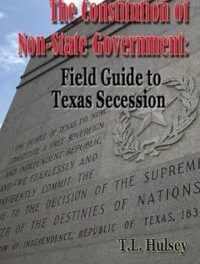We support our Publishers and Content Creators. You can view this story on their website by CLICKING HERE.
The doctrine of the Precious Blood means this, for Catholic and for Protestant alike—it means that you and I had something done for us which we could never have done for ourselves. Deny that doctrine, obscure that doctrine, and you have fatally altered the whole content of the Christian message.
He has proved his love for us, by washing us clean from our sins in his own blood. (Apoc. 1:5)
Pastoral Sermons, by Ronald Knox (Cluny Media, 524 pages)
In all language, I suppose, the pouring out of one’s blood is taken as a symbol of generous self-giving. When the Prime Minister told us he had nothing to offer us but blood and sweat and tears, he uses an image all the world understood. To the Jewish people, blood had a special significance; it made you think of an animal victim ceremonially offered in order to procure, for the worshipper, release from a sentence of death. The escape from Egypt was a kind of race-memory branded on their consciousness; and when the first-born of Egypt were killed, the Israelites had secured their homes from the visit of the Destroying Angel—how? By sprinkling their door-posts with the blood of the paschal lamb. So, too, with those sprinklings which were mentioned in the passage from the Hebrews I have just read to you. They identified the people as ceremonially associated with the sacrifice of that victim from which the blood came; to it their sins had been ceremonially transferred, and by its death they were ceremonially purified.
Christian thought, from its very beginnings, interpreted those old Jewish sacrifices as the type, the foreshowing, of the atonement made for our sins by Jesus Christ on the cross. We were all sinners, and our sins had offered the eternal Justice of God an immeasurable affront. What amends could we make? Why, none that would be worth having; the creature cannot make amends to its Creator, the finite to the Infinite. Jesus Christ, God and Man, came to offer amends on our behalf. And he, in order to make amends in full, in order to exhibit, in terms of human conflict, the issues that were at stake between God’s Justice and man’s sinfulness, would suffer a shameful death. His blood flowed under the lash, the thorns, the nails, the lance; he hung there, a Victim for his people. And it is not wonderful if Christian writers borrowed the language and the imagery of the old Jewish sacrifices to interpret what had happened. The blood is the life; here you could reckon, in concrete terms, what he gave up for us who gave up his life for us. “The blood of Jesus Christ his Son makes us clean from all sin” (John 1: 7). And, as if that were not definite enough, you get the text I have quoted from the Apocalypse, “By washing us clean from our sins in his own blood.”
Christian piety has seized on that verse, and treated it, it must be confessed, with startling realism. In the hymn which was sung just now the words occur, “There the fainting spirit / Drinks of life her fill; / There, as in a fountain, / Laves herself at will.” Is that the language only of Catholic, only of Italian piety? No, a fellow countryman of our own, no less a poet than William Cowper, will echo the same sentiment for you:
There is a fountain filled with blood,
Drawn from Emmanuel’s veins;
And sinners, plunged beneath that flood,
Lose all their guilty stains.
It is our own Evangelical poets, Evangelical preachers, who have made us familiar with the idea of being “washed in the blood of the Lamb” (Apoc. 7:14). And it is a familiarity which, in some minds, has induced contempt.
“What a mawkish thing this Christianity is,” they tell us, “and in what miserable taste! First of all you want us to believe that almighty God, instead of punishing human creatures for all the abominable things they have done, is content to regard Jesus Christ, by a kind of legal fiction, as the guilty person, and inflict all the punishment on him. Then, with your morbid interest in sin and suffering, you concentrate all our attention on the unfortunate affair of his death, instead of allowing us to draw inspiration from his very remarkable and noble life. Then, to give your artists and poets opportunity for a lot of crude imagery, you represent his death in terms of blood. Then, as if that wasn’t enough, you tell us to come and bathe in his blood, with other disgusting metaphors of the same kind. Can you wonder that people of common sense, people of taste, prefer not to go to church, when they know it will mean being treated to barbarous language of this kind, more suited to the worship of Mithras than to that of Christ?”
Well, keep calm for a moment. Let us take the points one by one. First (if I may begin at the end), let me explain this: it is probably true that the Bible does not refer to being washed in our Lord’s blood at all. In the passage of the Apocalypse from which I took my text, there is a variation of reading in the manuscripts. It is only a matter of one letter; but a good many of the manuscripts give you “ransomed us with his blood” instead of “washed us in his blood,” and that is probably what St John wrote. Anybody is quite at liberty, then, to say that he personally doesn’t like this metaphor, and thinks it over-strained and vulgar. Is it possible for good religion to produce bad art? That is a very difficult question to decide. But this is certain; that if men are going to be associated together as members of a Church, they will have to make allowances for one another. You can’t expect A and B to have exactly the same preferences in art and literature; A will be impressed by what B thinks vulgar. And if you are inclined to hold out for your own point of view about this, read the fourteenth chapter of St Paul’s Epistle to the Romans, in some translation which makes it clear what he is talking about.
Meanwhile, as I say, I think St John wrote “ransomed,” not “washed.” Again and again, in the Old Testament, you get the idea of God redeeming his people; that is, buying them for himself, buying them in for himself. And it was natural for Christians to think of our Lord as redeeming his Church, buying it for himself, to be his very own. The price he paid was his blood; and with his blood, too, he marked his own people, as a shepherd marks his own sheep with some characteristic dye. That, surely, was the point of the sprinkling with blood under the old law; it did not precisely wash you from your sins, it marked you out as belonging to a separate, to a privileged community. Blood symbolized not so much purification as redemption.
But then, why blood? Why so much emphasis on the death? Surely the life of our Lord had a significance of its own; he came to earth to live, not simply to die. Here, I think, we want to make the doctrine plainer than it is in many people’s minds. The life of our Lord on earth might have been a sufficient atonement for our sins, had God so willed, even if he had not crowned it by a death on the cross. If he had seen fit to ascend into heaven again, when he was still a little child in his Mother’s arms at Bethlehem, our redemption might still have been achieved. What made amends for our sins was not precisely his death, but that generous offering of himself to his eternal Father which began with Bethlehem and only ended on Calvary. If we use his blood as the symbol of that life-long generosity which redeemed us, it is only because the cross was the supreme test, the crucial experiment, which gave that generosity its perfect outward manifestation.
The objection remains, that almighty God seems to have neglected the obvious interests of justice in allowing the sacrifice of our Lord’s will—his, not ours—to make amends for the guilt of our sins—ours, not his. Can A, we ask, really and literally atone for something which B has done? Yes, but in asking that, don’t we perhaps forget that, in redeeming mankind, our Lord somehow—in a way we shall never understand—identified himself with it? Under the old law the go’el, the redeemed, was not just the first person who came along. If a piece of property had to be disposed of the next of kin had the first right of buying it, and no other claim could be looked at until he had waived his rights; you get that very clearly set out in the last chapter of the Book of Ruth. And our Lord, in becoming Man, became something very much more than our next of kin; he became the head of the whole human race; he lived his life, died his death, of perfect sacrifice, not as our substitute, but as our representative. Ah, you say, but once more, that is only a kind of legal fiction. I wonder: can we be so certain of that? Do we not impoverish the whole Christian idea, if we try to interpret the relation between divine and human things in terms merely legal? When we say that our Lord identified himself with us, became the head of the human race, is that just a metaphor?
Meanwhile, the doctrine of the Precious Blood certainly means this, for Catholic and for Protestant alike—it means that you and I had something done for us which we could never have done for ourselves. Deny that doctrine, obscure that doctrine, and you have fatally altered the whole content of the Christian message. The love of God, St John tells us, resides not in our showing any love for God, but in his showing his love for us first, when he sent out his Son to be an atonement for our sins. Forget that, and you have forgotten to be a Christian.
Republished with gracious permission from Cluny Media.
Imaginative Conservative readers may use the code IMCON15 to receive 15% off any order of not-already discounted books from Cluny Media.
The Imaginative Conservative applies the principle of appreciation to the discussion of culture and politics—we approach dialogue with magnanimity rather than with mere civility. Will you help us remain a refreshing oasis in the increasingly contentious arena of modern discourse? Please consider donating now.
The featured image is “A Church in the Trees” (c. 1800), by John Constable, and is in the public domain, courtesy of Wikimedia Commons.

 Conservative
Conservative  Search
Search Trending
Trending Current News
Current News 






